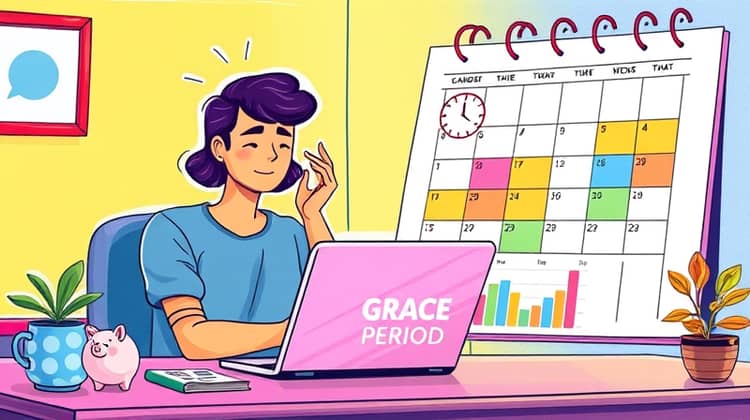Managing finances effectively is crucial in today's world, and understanding credit cards is a significant part of that process. One essential feature of credit cards that often goes unnoticed by many users is the grace period, which can help avoid unnecessary interest payments. In this article, we will explore the concept of grace periods in credit cards, their workings, and why they are essential for cardholders, enabling smarter financial decisions.
By the end of this article, you will gain insights into what a grace period is, how it functions, and how to utilize it effectively to maximize your benefits. We aim to provide a comprehensive understanding that will empower you to manage your credit card usage responsibly. Let's dive into the details of grace periods and make the most of your financial tools.
1. What is a Grace Period?

A grace period is a specific time frame during which a credit cardholder can pay their balance in full without incurring interest charges. Typically, grace periods apply only to new purchases and do not include cash advances or balance transfers. It's important for users to understand this timeframe as it can greatly affect the total cost of using credit cards.
Most credit cards offer a grace period of around 21 to 25 days, starting from the end of the billing cycle. However, to benefit from this grace period, the cardholder must have paid their previous balance in full by the due date. Failing to do so will result in the grace period being revoked, and interest will start to accrue immediately on new purchases. Understanding this concept is vital for maintaining financial health.
- A grace period typically lasts between 21 and 25 days.
- It applies only to new purchases when previous balances are paid in full.
- Cash advances and balance transfers usually do not have grace periods.
2. How Does a Grace Period Work?

The grace period operates as a window of opportunity for credit cardholders. During this time, users are encouraged to pay off their purchases without the additional burden of interest. It is crucial to keep track of the billing cycle and due dates to take full advantage of this feature.
To utilize a grace period effectively, you need to ensure that you pay your balance in full before the due date. Each credit card provider has its terms and conditions regarding billing cycles, so it is advisable to read them carefully to avoid confusion over payment schedules.
- Know your credit card's billing cycle and the length of the grace period.
- Make sure to pay your previous balance in full by the due date.
- Only make new purchases during the grace period to avoid interest charges.
In conclusion, once you grasp how the grace period works, you can plan your payments accordingly. By understanding your credit card statement and knowing when to pay the full balance, you arm yourself with the knowledge to avoid unnecessary costs.
3. Why is the Grace Period Important?

The grace period is essential for several reasons, particularly regarding financial management. First and foremost, it can help you save money. By paying off your balance in full within this time frame, you avoid interest fees, which can add up quickly if neglected. This can contribute positively to your credit score by maintaining a good credit utilization rate.
Additionally, the grace period allows cardholders to manage cash flow more effectively. It provides some leeway for timing your payments, which can be particularly helpful for those with variable income or unexpected expenses. Having this breathing room in your financial obligations can lead to more strategic spending habits. Moreover, it promotes better financial health by encouraging individuals to avoid accumulating debt.
How to Make the Most of Your Grace Period

To maximize the benefits of your grace period, several strategies can be implemented effortlessly. Keep track of your billing cycles and due dates to ensure you are prepared to make payments when required.
- Set reminders for payment due dates to never miss a deadline.
- Create a budget that accounts for credit card payments to simplify managing expenses.
- Consider automatic payments for the full balance whenever feasible.
Conclusion

Understanding credit card grace periods is a crucial aspect of responsible credit management. By being aware of how grace periods function, cardholders can avoid unnecessary interest and maintain better control over their finances. Knowing how to navigate this aspect of credit usage will empower you to use credit cards wisely and beneficially.
In conclusion, making a habit of paying attention to your billing cycles, grace periods, and payment patterns will lead to significantly improved financial health. Take full advantage of the grace period to optimize your credit card experience.














